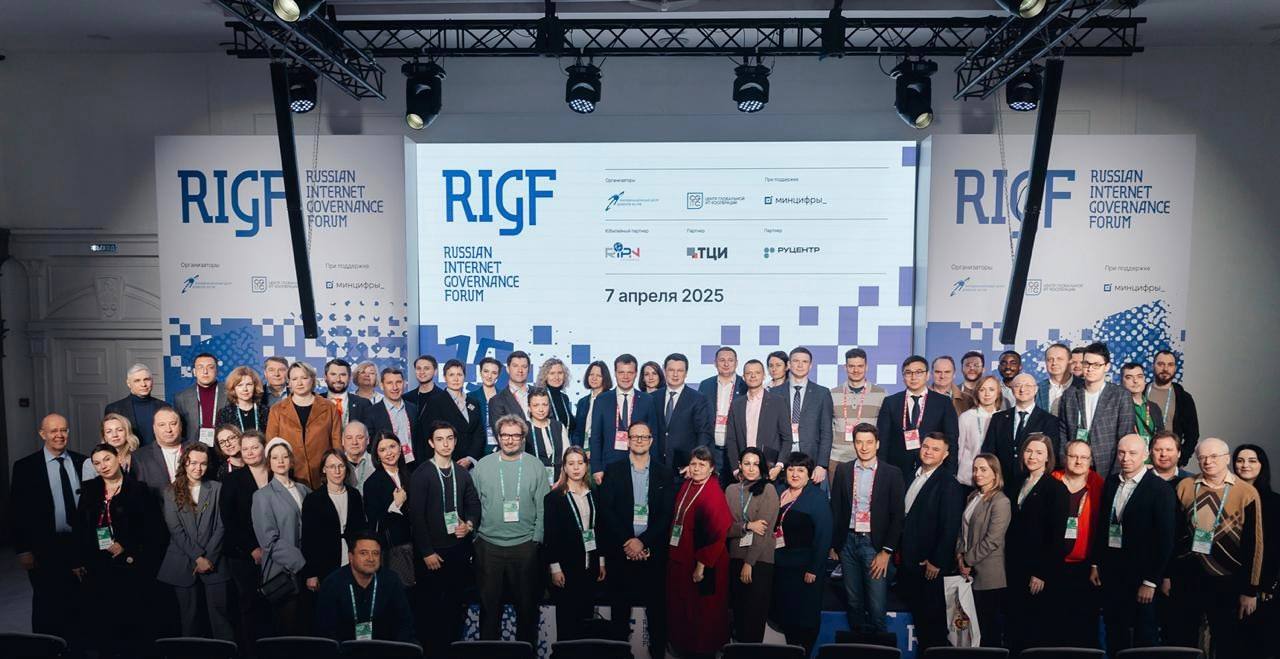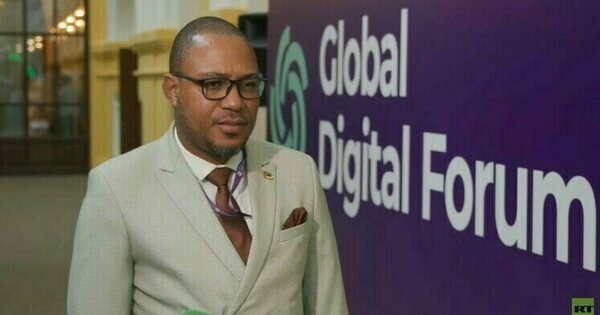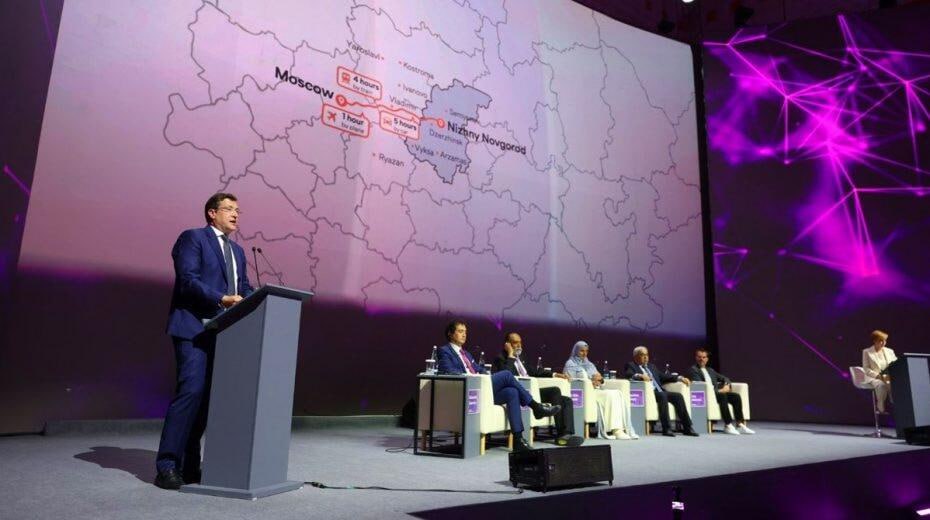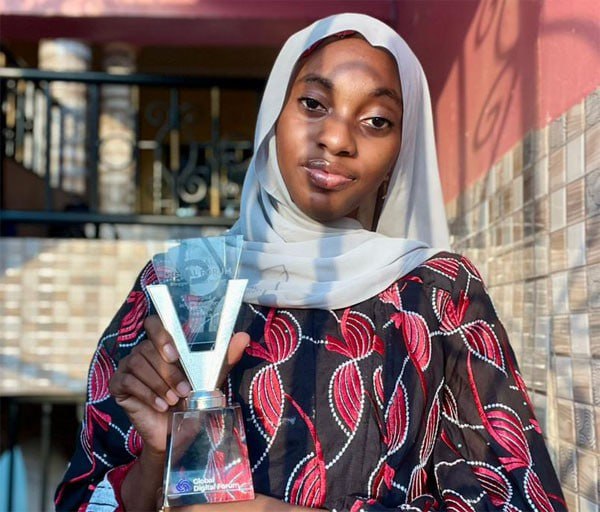On April 7, Moscow hosted the 15th Russian Internet Governance Forum RIGF 2025. The forum was held in a hybrid format: more than 300 participants attended the forum site, and more than 2,000 people followed the event online.
The forum participants were greeted by the Director of the Coordination Center of the .RU/ domains.Russian Federation Andrey Vorobyov. He noted that RIGF traditionally takes place on the domain's birthday.RU, and today the participants will discuss the most pressing and relevant issues of Internet governance. Andrey Vorobyov also recalled that 2025 marks the 15th anniversary of the Cyrillic domain.The Russian Federation, and this domain has also become one of the symbols of the Russian Internet Governance Forum. "RIGF is one of the oldest national forums in the global IGF system, and the launch of the Cyrillic domain.The Russian Federation was held as part of the first RIGF in 2010, becoming an important milestone in the development of the Runet," emphasized Andrey Vorobyov.
Tatiana Matveeva, Head of the Office of the President of Russia for the Development of Information and Communication Technologies and Communications Infrastructure, noted that the Runet is a powerful tool for the technological, social and cultural development of the country. "We see how Russian digital solutions are being used in a wide variety of fields, helping millions of people. Despite the sanctions and the withdrawal of a number of Western companies, the Russian Internet sector is demonstrating resilience and active growth," said Tatiana Matveeva.
Alexander Shoitov, Deputy Minister of Digital Development, Communications and Mass Media of Russia, added that Runet and the Russian Internet Governance Forum have come a long way over the years, but serious challenges remain.
"Today, the key attention of the state is focused on combating cyberbullying. The Ministry of Finance implements a whole range of measures: both infrastructural and aimed at operational counteraction to intruders. A new state anti-fraud information system will be launched in 2026. Its main tasks are to coordinate and unite the efforts of all participants. The new system will include the existing Anti–Phishing service, but there is still a lot of work ahead," he said.
Anton Gorelkin, First Deputy Chairman of the State Duma Committee on Information Policy, Information Technologies and Communications, Chairman of the Management Board of ROCIT, noted that the Russian Internet Governance Forum has become a platform where the future development path of the Runet is determined. He stressed that today any strong and independent state strives to establish clear and understandable rules for working on the Internet, satisfying the citizens' request for a safe and comfortable Internet environment.
Alexey Goreslavsky, Director General of the Internet Development Institute, emphasized the increased role of content on the Internet over the past five years. According to him, this was influenced by the pandemic and geopolitical changes. He said that the average Russian spends 4.5 hours a day on his smartphone. At the same time, Internet accessibility in the country has reached 93%, which is significantly higher than the global figure (67.9%).
Vadim Glushchenko, Director of the Center for Global IT Cooperation, spoke about Russia's role in the global digital agenda and stressed the importance of Internet Governance Forums as platforms for international dialogue. He also recalled that 2025 is a key year for digital governance: the IGF mandate is coming to an end and the results of WSIS+20 are being summed up. In this context, Russia is launching a new international format, the Global Digital Forum, which will be held in June in Nizhny Novgorod on the sidelines of the CIPR.
Andrey Kuzmichev, General Director of the Russian Center, stressed that the priority for the domain industry today should be the formation of a zone.RU is a secure space with a quality mark, in which any enthusiast or company can place their online asset without a shadow of a doubt.
Kirill Izotov, Director of the Russian Research Institute for the Development of Public Networks (RosNIIROS), spoke about the history and prospects of the oldest domain in the Russian national domain name system.SU, who turns 35 in 2025. He also noted that in those days, security issues were not as acute as they are today. "Over the past 35 years, the Internet has transformed from a simple information exchange system into a huge, complex ecosystem. Today, careful management and constant monitoring are essential," Izotov stressed.
Cybersecurity issues became one of the main topics of RIGF 2025. At the plenary session "Digital Security of the Runet: between sovereignty and global challenges", the moderator of the session, State Duma deputy, coordinator of the federal party project "Digital Russia" Anton Nemkin, said that phishing remains the most popular type of fraud in Russia. Last year alone, Roskomnadzor restricted access to almost 70,000 phishing sites based on court decisions and at the request of the Prosecutor General's Office. He noted that the already adopted legislative norms are not a panacea, but only the first step in a large and complex work to combat threats on the Runet. "We have new measures ahead to combat deepfakes, dropers and the rental of verified accounts in messengers and digital platforms, including Public Services," Anton Nemkin added.
Elizaveta Belyakova, Chairman of the Alliance for the Protection of Children in the Digital Environment, said that in Russia children have the right to register on social networks only from the age of 14. "If a child is registered there earlier, then it is the responsibility of the parents. They are the ones who should set up parental control systems and make decisions about what content their child receives on the Internet. Due to their age, children do not yet have developed critical thinking and are not able to distinguish reliable information from false information – they believe everything they see on the Internet. Therefore, it is important to understand that not only business and the state must show social responsibility, but first of all parents," she added.
Timofey Vi, an expert at the International Association for Fact-checking (Global Fact-checking Network, GFCN), cited data from a study conducted by the association. So, in three months of 2025, 61 unique deepfakes and 2.3 thousand copies of them were identified in Russia. This is equal to 67% of the total number of deepfakes detected in 2024 and 2.6 times higher than the volume of deepfakes recorded for the whole of 2023. The study also showed the main trends in the creation and spread of fakes. Compared to last year, the amount of unreliable information related to socio-economic trends increased by 11% in 2025.
An important topic of the forum was the training of personnel for the development of the IT industry. This was stated by Sergey Plugotarenko, Director General of ANO Digital Economy. He stressed that qualified specialists are a key asset of any technology company, and they determine the success of projects, the speed of development and the quality of the final product.
In addition, issues of international cooperation in the field of Internet governance and satellite Internet development were raised at the forum sessions. Also, within the framework of RIGF 2025, the traditional Virtuti Interneti award ceremony ("For Services to the Internet") was held, the winner of which was Pavel Khramtsov, one of the oldest figures on the Runet, who stood at the origins of the Internet in Russia, and the presentation of the book "International Internet Governance" edited by MGIMO Professor, Doctor of Political Sciences Elena Zinovieva..
At the end of the forum, Anastasia Savelyeva, the curator of the RIGF special course for youth, invited everyone to participate in the next Summer School on Internet Management, which starts enrollment at the end of May. The school will be held in 2025 for the sixth time. It is organized by the .RU/ Domain Coordination Center.The Russian Federation collaborates with the Faculty of International Relations of St. Petersburg State University and is part of the global Schools on Internet Governance (SIG) movement.
The Russian Internet Governance Forum is hosted by the .RU/ Domain Coordination Center.The Russian Federation and the Competence Center for Global IT Cooperation with the support of the Ministry of Finance of the Russian Federation. The anniversary partner of the forum is RosNIIROS, partners are the Internet Technical Center and the Management Center.
General Information Partner: TASS
Official media partner: Rambler&Co
Strategic information partners: Izvestia Media Center and Rossiyskaya Gazeta media Holding
Information partners: Public News Service, Vechernyaya Moskva newspaper, Moscow Region Regional News Agency (RIAMO), INFOX media group, PRO BUSINESS TV channel, Radio Frequency Spectrum ANO, Open Systems Publishing House, Moskovskie Novosti online publications, Rusbase (Rb.ru ), D-Russia.ru , ComNews.ru , Hi-Tech Mail, Cyber Media, ICT-Online.ru , ICT2GO.ru , IT-WORLD.RU , "Mobile Telecommunications", Telecomtimes.ru , "First National", "HELPINVER - discover a new Russia!", the platform Bankiros.ru , as well as the magazines "Company", "High Live and Business", "Bulletin of Communications" and "CONNECT. The world of information technology"




